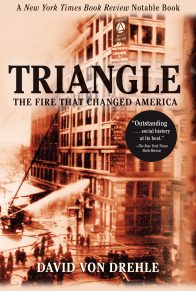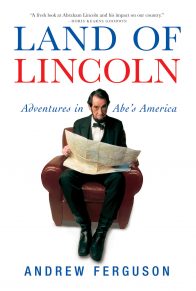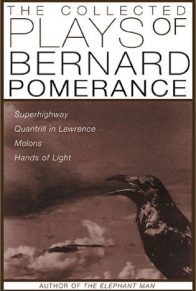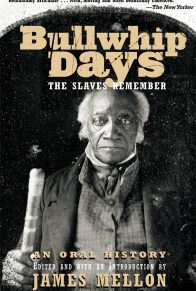A gray dusk settled over the Coosa.
The sun had slipped behind a steep, plum-colored ridge covered with skeletal trees, their branches reaching into the fading sky like outstretched arms. The last of the leaves had fallen weeks ago and now, as he followed the trail beside the river, they crackled like a great fire under his horse’s footsteps.
Winter was coming. John Ross could feel its chill in the wind that swept through dormant fields, rustling brown and withered cornstalks like a diamondback’s rattle. The harvest had passed and the days had grown shorter. It was November 30, 1831. In another two cycles of the moon a bitter cold would blanket the Cherokee Nation, and there was much to do before then.
Ross loved this land. Perhaps he realized his affection for the red earth was part of what made him a Cherokee, certainly more than his blood.
The great majority of his people had no use for material possessions—they could not be bought, like some Indians, with shiny trinkets, guns, or even food. Nothing mattered to them as much as the land of their ancestors, where they had lived and hunted and fought and died for hundreds—perhaps thousands—of years. Now all of the tribe’s great history, and its future, rested on him and yet another trip to Washington City. If this final attempt at diplomacy failed, he knew that his people might not see another spring, another summer, another harvest on this land.
That evening Ross rode with his younger brother Andrew. They had spent the day securing provisions for the Washington delegation and now, as the sun set, they followed the river toward the home of William Shorey Coodey, Ross’s favorite nephew and the husband of his stepdaughter. Coodey would lead the delegation; Ross would not go this time. Jackson had turned him into a target, blamed him for all the Cherokees’ recent troubles. He knew his presence could cost the tribe what small chance it had to reach an accord with the administration and the Congress. Without realizing the great irony of his words, the president of the United States had suggested this entire conflict was caused by the half-breed John Ross grandstanding for political favor.
To be sure, Ross was not a typical Indian chief. He did not wear the tribal garb of his predecessors but a suit and tie like the finest gentleman farmer. A trading post he barely had time to run had made him more prosperous than most white men. Short, slight, and reserved, he carried himself with the air of a well-educated man, which he was. With his pale skin and European features, he did not even look like an Indian. In fact, Ross looked very like the southerners who had become his sworn enemies. Had he chosen a different path, Ross could have lived among the settlers, hidden his heritage, and never had to worry about removal. But if he ever entertained such thoughts he shared them with no one. He had decided at an early age that he was a Cherokee. Their fate would be his.
For this choice he had inherited all of the tribe’s troubles. Since he was a boy—he was now forty-one—he had watched white men chip away at the Great Cherokee Nation. Once, his people’s land had stretched from the southern Indiana territory to the seacoast, but they now occupied only small areas of Tennessee, Georgia, Alabama, and North Carolina. Their land had been taken slowly, through negotiation and trickery. And when that had not worked white men simply bribed influential chiefs to sell. Ross had seen it happen any number of times in his life, but when he came to be chief he’d put a stop to it. As the Chickasaws, Choctaws, Creeks, and even the mighty Seminoles fell under the pressure of the United States military Ross held his ground. He had accomplished this without violence, in part because he and his people fancied themselves more peaceful than other tribes. In truth, he knew that no matter how strong or how brave the Cherokees were, they would be no match for the white man’s army. He had seen the work of Jackson’s troops firsthand years ago, and it made a strong impression on him.
His obstinate nature had not won him many allies outside the tribe, but it had earned him the love of his people. Their faith in him had no limit. Indians went out of their way just to touch him, to speak a few words in his presence. They never questioned him; indeed, to the consternation of his detractors, they nearly worshipped him. The Cherokees knew Ross was their last hope, though he was an unlikely savior: only one-eighth Cherokee, a rich trader barely able to speak his tribe’s native tongue. But they had not elected him principal chief for his ability to speak Cherokee; they had elected him, at least in part, because of how well he spoke the white man’s language.
It was Andrew who decided they should call on Coodey; Ross had not been inclined to go. He was tired and wanted only to return to his house overlooking the headwaters of the three rivers. But he could not let his brother continue alone, could not abide the thought of others doing the tribe’s work while he rested. He had proved himself a tireless leader for more than a decade, both as a member of the council and now as chief, and he did not delegate his duties easily. Yet there was more to it than that. There was the man ahead of them on the trail.
The Ross brothers had seen this stranger once too often in a single day for it to be coincidence, most recently at the ferry landing on the other side of the river. The man said that his name was Harris and that he was looking for a stolen horse. He traveled with a local Cherokee named Oonehutty, a harmless, simple man Ross knew well. But something about this Harris seemed sinister, and Ross thought his story rang false. Harris claimed to have information that a thief had carried his animal away on Ross’s own ferry. There was accusation in his tone.
Earlier, Ross had assured the man he had not seen a horse of that description or any strange people in the area, but it seemed to make little difference to Harris. He continued to talk about the horse and asked several times if he was really speaking to John Ross, the famous Cherokee chief. The whole incident left Ross unsettled. When the ferry arrived he had told Harris and Oonehutty they could cross first. He and Andrew would wait for the next trip.
As the man named Harris boarded the ferry he had turned to Ross and said, “I hope we shall be better acquainted after this.”
Now these same men were once again ahead of Ross on the trail, and another had joined them. Silhouetted in the dusk, the party made a strange sight: Oonehutty riding with a rifle slung over his shoulder, Harris and the other man following behind, whispering to each other. When Ross and Andrew caught up to them the men claimed they were riding to Coodey’s house, too, which only made the chief more suspicious. He was sure his nephew did not know them. Ross suggested that since they had the same destination they should ride together.
The third man’s horse matched the description of the stolen animal, but when Ross asked about it he got no response. The two white men were jumpy and guarded, glancing back and forth conspiratorially. Harris, who had been talkative earlier, barely said a word. Oonehutty seemed oblivious to the tension but the Ross brothers felt it. The chief kept talking, trying to loosen the third man’s tongue, and before long he allowed that his name was Looney. Perhaps it was Ross’s questions, or his unmistakable air of authority, but Looney finally broke down.
“Harris, I am now going to tell the whole truth about this business,” he said.
“The truth alone is what I want to know,” Ross said.
“He is foolish. The horse is not his,” Looney said.
“Whose horse is he?”
“My own.”
“Do you know Harris?”
“No”
Before Looney could finish speaking Andrew screamed out to his brother: “Take care!”
Ross turned immediately, as if he had expected the warning. He jerked his horse in the direction Andrew was pointing and saw that Harris had fallen behind them and gotten off his horse. By the light of a waning crescent moon Ross could see him crouched behind a tree, and he saw the gun pointed at him before Harris spoke.
“Ross, I have for a long time been wanting to kill you, and I’ll be damned if I don’t now do it.”
John Ross was close enough to hear the cold steel click as Harris cocked his rifle.
He could not count all the men who wanted him dead. Anymore, it seemed they lined up for the opportunity. Besides Jackson—the great Indian killer himself—Ross knew his most dangerous enemy was Wilson Lumpkin, the Georgia governor. As a congressman, Lumpkin had urged the president to make Indian removal one of his top priorities, as if Jackson had not already been so inclined. Ross had known both these men for years, as allies and adversaries, and realized they were playing to the demands of their constituents. Settlers wanted the Cherokee land and were willing to go as far as they must to take it. Jackson and Lumpkin, who had their own prejudices, were more than happy to oblige.
Ross was surprised only that the violence had not come earlier. For more than a year he had stood up to settlers, using his warriors to drive off illegal squatters, a right given to the tribe in any number of treaties with the United States government. The Indians no longer killed these intruders but still intimidated them by burning their homes, their barns. On a few occasions things had gotten out of hand, and this was used as proof that Indians were savages. But Ross argued that white settlers would react no differently if someone tried to take their property.
The gold had made it worse. When a large mine was discovered on Cherokee land two years earlier, the Indians found it harder to fight off the crazed prospectors than they had the settlers. Georgia authorities would not hear the Cherokees’ complaints and, in fact, gave gold diggers legal standing for their claims. The state had long tried to whittle away the rights of the Cherokees and other tribes, sending commissioners to bribe compliant chiefs and intimidate Indian families. Georgia law declared the Indians’ title to the land temporary, granted its sheriffs jurisdiction over their territories, and made it illegal for Indians to testify against white men in a court of law.
Ross had played by their rules and took his fight against Georgia to the United States Supreme Court. Even though he lost the case Ross won a single point that he believed could drive a wedge between Jackson and the Congress. The Supreme Court had declared the Cherokees a sovereign nation and, with that concession, Ross would settle for nothing short of legal recognition by the United States. The Indians wanted only what had been theirs before, but Ross dreamed that one day Georgia and Tennessee would border the state of Cherokee.
The chief’s position was not universally popular, even among his own people, and some Cherokees held a grudge against him. Ross had soured dozens of deals between whites and Indians, stopped or exposed the bribery of several local chiefs who sold out their people for a few hundred dollars or a shiny new gun. Once, in Washington City, another Cherokee had nearly killed him, believing Ross had ruined his deal in order to get a better one for himself. At that point not everyone realized the “White Bird,” as they called Ross, could not be bought.
Anyone could have sent this Harris after him. Ross no longer confined his suspicions to town chiefs or rogue Indians; these days, he had detractors in his own inner circle. Some of his closest advisers thought him hopelessly naive, and Ross knew they questioned his judgment behind his back. Did he think he could reason with white men just because he was right? A growing number of the council’s most respected minds, and perhaps some members of his own family, believed the tribe would be better served to take the money Congress had offered for their land and relocate to the Arkansas territory. Even Ross’s mentor and closest adviser, Ca-Nung-Da-Cla-Geh (or Major Ridge, as the white men—and Ross—called him), increasingly felt the Cherokees had little chance of survival in the east.
Ross had visited Ridge earlier that very afternoon. It was not unusual—the two men saw each other so frequently the locals called the path between their homes the Ross-Ridge road. It was there that Ross had first encountered Harris.
To gather supplies for the Washington delegation, Ross and his brother had stopped at the trading post Ridge operated behind his house. It was a popular gathering spot for Cherokees, a place where Indians passed the time together talking. If there were any strangers mingling among the regulars that day Ross didn’t notice. He and Andrew bought their provisions and, when they finished, politely called on the old chief.
Ridge met the brothers on the porch of his sprawling two-story mansion, which sat on a steep bank overlooking the Coosa. At sixty, Major Ridge was still as imposing as a young warrior. The chief was fit and strong, although he had thickened around the middle, and he sported a head of white hair that stood in great contrast to his dark, ruddy complexion. He dressed as fashionably as Ross, and may have been even richer—both had amassed considerable wealth through farming and trading posts. Ridge did not have Ross’s education, and could not speak English fluently, but he was just as smart as his protégé. Ross was wise enough to realize this.
Ridge invited Ross and his brother inside to sit by the fire. In one of Ridge’s comfortable formal rooms the men talked about the upcoming trip, tribe business, the harvest. Over the years, John Ross had learned a great deal from the old man and still listened to everything he had to say, even if they had begun to avoid matters on which they disagreed. Ridge had come of age in a time when Cherokees—himself included—ambushed and killed settlers who claimed tribal land. But he’d learned to distinguish degrees of right and wrong, and the fact that he lived to tell about it said much about how judicious—and how tough—he was. Ross did not doubt the old man’s intellect, but he feared Ridge no longer had that fight in him. It was one source of the growing rift between them.
During the conversation Ross heard someone call his name. There was a man standing on Ridge’s porch, just outside the room, interrupting their talk with an insistence in his voice that made ignoring him impossible.
“Is John Ross here?”
Ross had stepped out on the porch to face a tall, gaunt man. Harris introduced himself, said that he’d come from North Carolina. He asked about Ross’s ferry, which crossed the river three miles south near Head of Coosa. That’s when Ross first heard the tale of the stolen horse. He was not interested in this man’s problems, but when Ross tried to excuse himself Harris had kept talking, blathering on in a manner that made little sense. By the time he eventually shut up and wandered off Ross was bored. At the time, he didn’t give the incident much thought.
That was the man pointing the gun at him now.
When Harris cocked his rifle, Ross wheeled his horse around and galloped off, retreating to the sound of the gun’s report. As the shot echoed through the woods, Ross looked back to make sure his brother was following. Andrew was lagging behind but had not been hit.
Ross knew the countryside well, and that knowledge gave him an advantage in the dark. He rode fast, knowing that it was not only himself but the entire Cherokee Nation he had to save. The tribe depended on him; there was no one else who could stop Andrew Jackson.
Even though the attack made his blood boil, turning to fight never occurred to Ross. He was not a warrior and he knew it. Ross’s only thoughts were of escape. Although it would have been natural to be afraid, Ross was primarily just annoyed. The attack was merely something else standing in the way of his business. He knew that he must get away, for he still had much work to do.
Andrew caught up to John within minutes and the two rode quickly and quietly through the night. After a while they turned off the trail that led to Coodey’s, not wanting to bring this trouble on their nephew.
As his horse sprinted, dodging branches on the narrow trail, John Ross had little time to wonder who had sent this man Harris. Had it been the governor of Georgia, the president of the United States, or one of his own tribesmen? In truth, he knew it mattered very little at that moment, because he could hear the man gaining.
Then another shot rang out in the dark.













